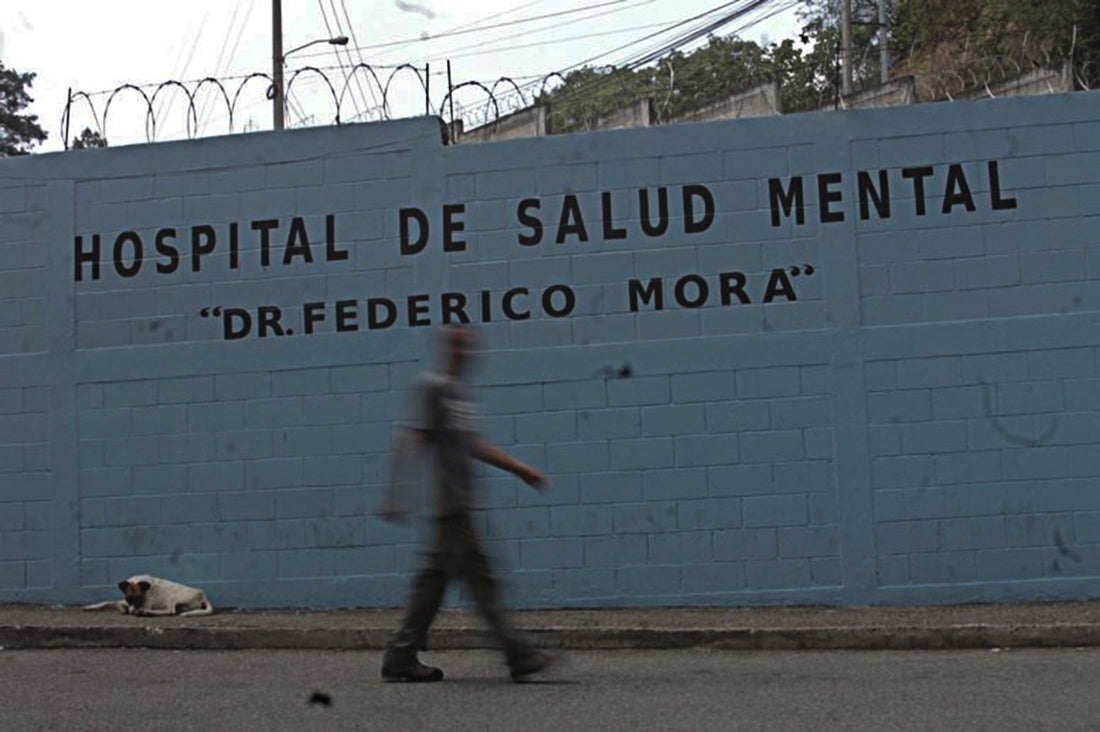
Addressing the Mental Health Crisis in Guatemala
Share
Mental Health in Guatemala: An Overview
People in Guatemala’s Central and Western Highlands experience the most extreme combinations of systemic poverty, illiteracy, and inequality in the hemisphere. As a result, many suffer from poor health outcomes, including malnutrition and mental health difficulties.
In Guatemala, more than 25% of the population - a whopping 3,250,000 people - will suffer from a mental health disorder in their lifetimes. However, less than 1% of healthcare expenditure is spent on mental health. These statistics paint the picture of Guatemala’s troublesome relationship with its treatment of mental health disorders. But what are the possible causes of the mental health crisis in Guatemala, and how can we tackle it?
Causes of Mental Health Difficulties in Guatemala
The Civil War
Between 1960 and 1996, Guatemala was ravaged by civil war. Lasting almost 4 decades, it is considered the bloodiest Cold War conflict in Latin America, resulting in an estimated 200,000 deaths and causing many mental health conditions to arise. The lasting effects of war, including both emotional trauma and socio-political issues, continue to permeate the everyday lives of many Guatemalans, meaning mental health continues to deteriorate.
Photographs of people missing and killed during Guatemala's civil war are laid out at a memorial site where hundreds of remains were exhumed. Copyright: Sandra Cuffe/Al Jazeera
Social and Political Issues
The Guatemalan population is significantly affected by violence, insecurity, lack of employment and other stressors. In 2020, Guatemala’s poverty rate increased to 52%. As a result of these everyday stressors, Guatemalan people are at greater risk of developing mental health disorders. Unfortunately, significant social and political unrest undermines well-being, and mental health is often overlooked and neglected.
Limited Mental Health Resources
Guatemala’s limited mental health resources are insufficient to alleviate the stress that socioeconomic disadvantages cause. With less than 1% of the medical school curriculum dedicated to mental health, primary care professionals lack training in this area. Not only this but there are not enough specialists to cover the country’s needs. For example, there are only 0.54 psychiatrists per 100,000 habitants.
Outside Federico Mora Hospital, Guatemala’s only public mental health institution. Copyright: La Hora.
Lack of Knowledge and Misconceptions
Only 2.3% of Guatemalans have consulted a professional to treat emotional or mental health difficulties. This is likely due to a lack of knowledge and misconceptions surrounding mental health. Mental health is undeniably stigmatised in Guatemalan culture. Many associate mental health disorders with danger or craziness, and mental health difficulties are considered lesser than physical health conditions. Some even believe psychosocial disabilities are the result of possession by evil spirits or witchcraft. Others fear they are contagious. As a result, many individuals avoid seeking help for fear of stigma and exclusion.
Nutrition
Guatemala has the 5th highest rate of chronic malnutrition in the world, and the highest rate in Latin America and the Caribbean. 47% of Guatemalan children under the age of 5 are chronically malnourished, with rates reaching as high as 70% in indigenous communities. This has many adverse effects on child survival rates and long-term well-being as physical health has significant links with mental health - for example, food insecurity is associated with anxiety and depression in children and indigenous women.
Upcoming Solutions to the Mental Health Crisis
In recent years, progressive steps have been taken to approach the mental health crisis in Guatemala. False beliefs surrounding mental health are increasingly demystified, and many specialised centres have opened to provide psycho-emotional support to those who need it.
One key method for improving the long-term mental health of the Guatemalan population is through mental health interventions in schools. Similarly to adults in Guatemala, youth suffer from mental health difficulties. A recent analysis showed around 23% of children and adolescents in Guatemala City report abnormal mood, including feeling extremely sad or happy, withdrawn, suicidal, anxious or aggressive.
At Trama Textiles, the Sponsor a Weaver’s Child Project was created to support families living in rural, lower-income areas of Guatemala to provide an education for their children. This project provides scholarships to these children so they are able to complete at least middle and high school.
In recent weeks, the Trama team developed and delivered a new nutrition and wellbeing workshop to our scholarship students. The workshop aimed to educate the children on key aspects of healthy eating and nutrition, as well as tips for self-esteem and general wellbeing. The workshop was a great success, and we at Trama hope to deliver more workshops like these in the future.
The scholarship mothers and our Trama team following our nutrition and well-being workshop. Copyright: Trama Textiles.
With more initiatives like this, we at Trama hope to take important steps toward tackling the mental health crisis in Guatemala. Together, we must continue to support the most vulnerable people in both rural and urban areas, working on both prevention and intervention to improve overall wellbeing and quality of life.
- Emilia Pettit
